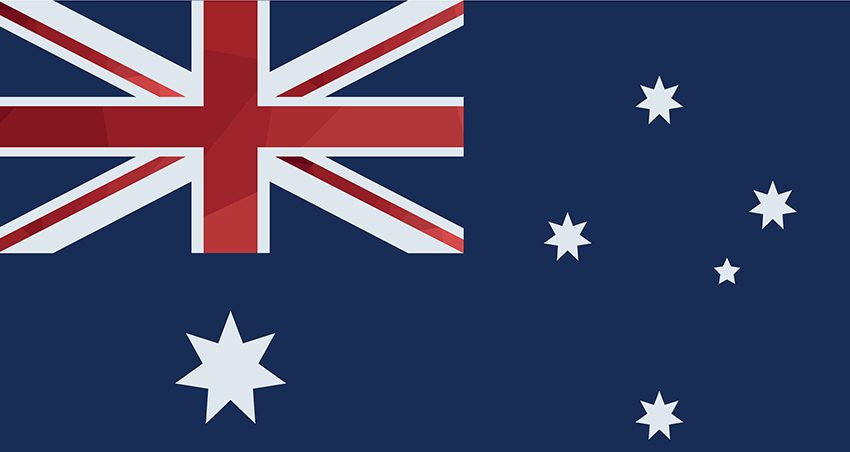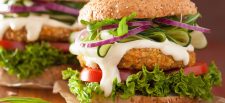At present much of the food industry, the meat sector in particular, appears disappointed that the Trade and Agriculture Commission scrutiny committee that has been promised is still only in the early recruitment stage. In particular this is at a time when the first, being Australia, of the real trade deals, and one that will have many ramifications for future FTAs, has already been agreed.
The concerns were raised earlier in the week in Scotland when in a letter to the secretary of state for international trade, Liz Truss MP, Scotland’s farming, food and drink associations have called for more scrutiny and industry engagement for all Free Trade Agreements (FTAs) – see FMT previous story.
NFU Scotland president Martin Kennedy said: “The deal has not been afforded the appropriate level of scrutiny and consultation and has been agreed in advance of the promised statutory Trade and Agriculture Commission being established to scrutinise such deals. Parliamentarians must be given the opportunity to examine this deal, and any future deals, with Government carrying out a detailed impact assessment on what it may mean for the agriculture and food sectors.”
England
Nick Allen, CEO of The British Meat Processors Association said: “Quite what this deal will mean for the market in this country will depend on what cuts of meat the Government has agreed as part of the quota.”
Peter Hardwick, BMPA’s trade policy advisor explained: “It’s not the amount of meat by weight that matters, it is the amount of high-end, high value cuts undercutting home produced product that will have a disproportional impact on the marketplace. It will skim the top off our home market and have a very negative effect on returns. It’s this part of the animal producers and processors rely on to remain profitable.
“A 20 foot container load of beef with 17,000kg of a full range of meat cuts might represent the meat from just 60 animals. A similar shipment containing only high-value boneless sirloins would have come from over 1000 animals. If it were fillet steaks it could be three times that number.
“In simple terms if as little as 7,000 tonnes were imported as sirloins it would take 20% of the UK’s prime beef production to produce here.”
NFU president Minette Batters commented: “It is critical that the government now engages with industry on the details of the deal as soon as possible and that Parliament is involved much more during the final stages of the negotiations to ensure it has sufficient oversight of the agreement. This means providing both Houses with the details well in advance of ratification alongside a proper impact assessment so Parliament can ensure it is satisfied that this deal is right for all of the UK – consumers, workers, farmers and other businesses alike.
“The Trade and Agriculture Commission will have a vital role to play in assessing these aspects of the deal in the near future and it is crucial it is up and running soon so that it can provide its report to Parliament on the impact of the deal in good time ahead of ratification.
Dominic Goudie, head of international trade, the Food and Drink Federation (FDF) gave a cautious welcome: “The UK and Australia are important trade partners when it comes to food and drink, with trade in our sector’s products worth more than £800 million in 2020. The FDF therefore welcomes the news that the UK has agreed broad terms of a trade deal with Australia.”
However, he also felt it was important for the industry to know what the terms of the agreement are: “It is now vital that we know the detail of what has been agreed to help businesses understand and begin to prepare for the new terms of trade. Food and drink manufacturers will hope that this deal will remove burdensome and unnecessary barriers to trade that will provide a timely boost for our industry’s post-Covid recovery. The terms must also ensure that consumers have continued confidence that any agreement maintains the highest food safety and animal welfare standards.”
Wales
Hybu Cig Cymru – Meat Promotion Wales (HCC) chief executive Gwyn Howells said: “The figures from the Australian Government suggest that, under this deal, the country will have an immediate right to export almost ten times as much beef, and twice as much lamb, to the UK as it does now.
“This news will do little to calm fears in our domestic livestock sector concerning the need to keep a level playing field. We produce to high standards in terms of welfare, not using hormones and other supplements used in some production systems overseas.”
Speaking to the BBC’s World at One programme, trade secretary Liz Truss said: “At the moment there are extremely small quantities of Australian beef coming into the UK.
“So what we’d be looking at here is over time some of the EU imports [lost due to Brexit] being replaced by Australian imports.”
Truss indicated she saw the deal as a precursor to a larger Asia-Pacific deal in the future: “We can see the evidence, that sales of British beef internationally are growing to places like Asia-Pacific and the United States because people want to buy high quality British products produced in a high animal welfare way.









